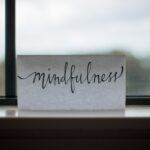For most women, especially post 50, you may well notice significant changes to your body your mood and personality. You may have noticed your sleeping patterns have changed, some loss of libido, hair and nails not great, moody and sometimes tearful or angry, you may also suffer general aches and pains, and will be asking what’s happening to my body? In this article, we will look at how Menopause is largely responsible and what can be done to limit the effect
Although it was a long time ago, I recollect asking my mother the same question, “what’s happening to my body?” this was when I was 14 years of age. Hormones were responsible then and partially are responsible now.
Unlike our teens, we can take back some of the control, especially around our health and how we mentally approach the ageing process.

Medical Disclaimer: This post is for information only. Should you have any concerns please speak to your Doctor, Physician or specialist for the area of concern
Contents:
1. What Happens to A Woman’s Body after 50
2. Surprising Way The Body Changes Over 50
3. What to Expect From Your body in 50s and 60s
4. Aches & Pains – What’s Normal and what is not
5. Healthy Ageing Beyond 50
1. What Happens to a Woman’s Body 50+
A lot happens as we enter and during our 50s. The main cause for most of these changes is menopause. Before and during menopause, your body and hormones start to shift.
The changes tend to start 1-2years before menopause during the perimenopause stage. You may be forgiven for asking “What’s happening to my body?”
Some Of The changes in a woman’s body at 50 plus
Your body is going through a lot, it’s trying to create a new balance. During this time whilst your body tries to adjust to all these hormones flying about, you are likely to go through some pretty bothersome changes. The truth is, Estrogen and Progesterone has helped our bodies in a lot of ways we may not have noticed when we were younger.

Quick biology lesson: What causes menopause and how does it link to the changes?
“During a menstrual cycle: The Hypothalamus (located in the brain) releases hormones known as Gonadotropins (GnRH) which travels to the Pituitary gland which then creates two more hormones of its own called Follicle-Stimulating Hormone (FSH) and Luteinizing Hormone (LH).
FSH and LH create ovarian follicles which create sex hormones. FSH goes to the Granulosa Cell and is then converted to Estradiol (a member of the Estrogen family) and Progesterone. During a menstrual cycle, a couple of follicles are stimulated by FSH and LH.
Menopause: Over time, many follicles degenerate and the follicles that remain become less sensitive to the FSH and LH stimulation, this continues until menopause.
When there are no remaining follicles responding to GnRH, this causes the menstrual cycle to terminate completely. Fewer follicles also mean less Estrogen and Progesterone.
This process of secretion during menopause is much more volatile than during the reproductive secretion.
So, a Secretion Erratic combined with a low/decreasing level of Estrogen is what leads to the most common (and most bothering) symptoms of menopause, including hot flashes, night sweats and vaginal dryness”.
Now that’s out of the way, let’s get into more of the changes
Weight gain: As you get older, your metabolism starts to slow down, making it harder to burn calories and maintain a healthy weight. Another factor is that as you get older, your lean muscle mass will start to decrease as well. Because muscle helps to burn calories, a lack of this will make it harder for your body to burn calories naturally.
What to do? You know, I know it, the answer is: exercise. More specifically, light and low impact exercise to help grow muscle and burn the calories that your metabolism is failing to. Make it fun! Go for a walk with friends, take an aqua aerobics class, go for a bike ride with your family, anything you feel comfortable with and have fun doing
See below for a short 20 minute work out specifically for over 50s. Don’t be put off by the two young things taking the class. They are really good.
You might wet yourself: A lot of women don’t like to talk about this subject much, but it’s totally normal. We’ve all got a stack of Tena-ladies somewhere. The reason you’ll begin to experience a lack of bladder control is due to the muscles in your pelvis becoming weaker. Another factor is what’s known as a prolapse which is caused by a lower level of estrogen, aging and childbirth.
What to do? While it is normal, if it is really bothering you, you should talk to your doctor. There are treatments out there to help. Another way to help prevent or manage urinary incontinence is to do some floor pelvic exercise to help strengthen and tighten the pelvic muscles.
You’ll have trouble sleeping: If you are going through menopause, hot flashes and night sweats make it difficult to sleep. The changes that your body is going through can make the body restless and in turn can also make it difficult to fall and stay asleep. Even if you have passed menopause, sleep is a common problem, something I suffer with as do many older women. Your sleep pattern will change and will likely mean you wake up a few times throughout the night.

sponsored by Unsplash
What to do? Count sheep, no only joking. If you are struggling to sleep due to night sweats and hot flushes, there are some ways to make the nights a bit easier. Avoid caffeine, hot drinks and spicy foods as much as possible, these may intensify menopause symptoms, particularly hot flushes. You can also speak to your doctor about a hormone replacement therapy or Selective serotonin re uptake inhibitors (SSRIs). I also find a good night routine is essential. This requires leaving electronic equipment at least 30 minutes, preferably an hour pre lights out. I also find ten minutes of mindfulness works wonderfully. I have found a great app which quietly plays nature sound effects for thirty minutes (timer). My particular favourites are distant thunder and rainfall.
Click on the link it’s from Google and it’s free.
If you are past menopause and still having trouble sleeping, try to find ways to relax in the evening leading up to bed. Supplements like melatonin can also help. If this is becoming too bothersome, speak with your doctor.
Cardiovascular and Osteoporosis: This is quite a serious one. Estrogen normally works as a protective effect on the cardiovascular system. It helps to keep the blood vessel’s walls flexible which allows for blood flow. Estrogen also helps to sustain bone density. So because now we have a lower estrogen level, there is a higher risk of developing a cardiovascular problem or Osteoporosis.
What to do: Stay on top of your blood pressure and keep in touch with the doctor if you ever feel concerned. Eat well, exercise and don’t smoke, living a generally healthy lifestyle greatly reduces your risk of developing cardiovascular problems. For osteoporosis, taking Calcium and vitamin D supplements is a great way to attempt prevention of osteoporosis. I am a firm believer of vitamins for joint pain and general aches and pains and really notice the difference if I stop taking it, within a few days. Healthline has written detailed information click here
2. Surprising Ways your Body Changes Over 50
Your sweat will change: As we start to get older, our sweat composition actually begins to change! Just like when we were teenagers and our hormones started to shift, the same thing happens again as we get older. The hormones (yet again!) are responsible for the smell of your sweat changing.
What to do: Luckily, there are deodorants specifically designed for women of our age, such as Magsol, Magnesium Deodorant. If this is starting to concern you, talk to your doctor.
You might shrink: No, it’s not just your imagination, you really do shrink as you get older. Despite what you may think, it actually doesn’t have anything to do with posture. Typically, people start to lose roughly half an inch every 10 years after the age of 40. Between 30-40 years old your spine will start to compress, which makes you shrink.
What to do: This is nothing to worry about as it’s very normal. There isn’t really anything you can do about this I’m afraid.

Lum3n – Unsplash
You may start to develop digestive issues: You may have been able to eat whatever you wanted, whenever you wanted when you were younger, but that changes as you get older. You may have started to notice that you don’t feel so great after consuming dairy anymore, or that certain foods give you heartburn now. As we get older, our oesophagus and bowel start to slow down, resulting in issues such as constipation and acid reflux. Despite maybe getting more acid reflux than you used to, as we age, our stomachs actually produce less acid, which can make some vitamins and even medications difficult to stomach.
What to do: First things first, if you are really suffering, talk to your doctor. A change in your diet may be necessary. Try to work out what types of foods don’t agree with you and make a note of them. Dairy and gluten are common intolerance s that we begin to develop over time. There are plenty of dairy and gluten free alternatives out there to try. It’s more of a trial and error processes you’ll have to go through until you hit a sweet spot.
3. What to Expect From Your Body During Your 50s and 60’s
When you’re in your 50s, there is a lot of change and seems as though it’s all happening at once. There is a lot going on in your body and it takes a rather large toll on both your physical and mental wellbeing.
As you’re in your 60s however, these changes are more subtle and gradual. You slowly start to notice that some things are harder to do than they were 5 years ago. Unlike menopause where there’s a large shift of hormones, in your 60s your hormones are still changing, but there’s more of a balance this time.
4. Aches and Pains – What is Normal & What’s Not
Whether you think it’s normal or not, you should always consult your doctor about any concerns, aches or pains you notice. It is always worth going and checking, no matter how small a concern you may think it is. When you do go to the doctor, try to be as specific as possible. If you’re having pain in your knee, what type of pain is it? Which knee? Does it only hurt when you walk or all the time? Get specific about every ache and pain you’re going through, and this will help the doctor to help you.
Estrogen actually helps to reduce inflammation, which is why during and after menopause (when the Estrogen levels start to decrease), we start to notice aches and pains more so than we normally would. After years of activity your joints will start to ache, specifically knees, shoulders, elbows, neck and hands.
You’ll also start to bruise more easily, which is also linked to low estrogen levels. Your skin isn’t able to retain water the way it used to which would normally act as a cushion. This is because as you age, you lose elasticity in the skin which results in thinner skin and a much higher chance of painful bruising.
5. Healthy Aging 50 & Beyond
Aging and menopause is a natural, biological and unpreventable part of life. However, certain steps can be taken to ease the symptoms of aging.
i* Exercise: This should always be a part of your life. This doesn’t mean you have to go to the gym every day or go running. This could mean going for walks every day or a gentle bike ride on the weekends. Maybe join a dance class with your partner or friends. Moving the body frequently helps to strengthen the muscles and bones. It’s also great for your mental health.
ii*Drink enough water: Drinking plenty of water helps the body to function at its best. It helps prevent muscle cramps, headaches and can help aid digestion. Water also helps to maintain skin moisture and carry nutrients to the skin cells.
iii*Take Vitamins: As I mentioned earlier, getting older can mean our stomachs can find it harder to absorb certain nutrients. Vitamin D, calcium supplements and several others. Ordinarily, a healthy diet should include sufficient vitamins and taking supplements is a waste of money, however, there are many times, despite good intentions, this does not happen, it could possibly be due to illness, taking antibiotics or other medication, smoking or drinking alcohol, are some of the ways a diet suffers and has insufficient nutrients.
In my particular case, I have to take medication that causes a few related issues, to compensate I find probiotics are essential together with Omega 3 and Glucosamine. I have done some fairly robust research on vitamins and found that Healthspan offers exceptional value and good quality.
I have added a Healthspan Link through Amazon which will allow the US as well as the UK readers to purchase should you wish.
Affiliate Disclaimer. I have added an Amazon link that will take you directly to the Amazon Page, should you purchase I will receive a small (teeny tiny) commission. This is at no extra cost to you
Frequently Asked and Related Questions
 Hormonal and often unhappy – image Claudia Wolff
Hormonal and often unhappy – image Claudia Wolff
Am I approaching or in the Menopause?
Menopause starts after it has been 12 months since your last menstrual cycle. The phase before menopause is what’s known as perimenopause which means “around menopause” and will usually last for 1-2 years before menopause begins. Most women experience this at different ages. Here are some symptoms to look out for:
- Hot flushes
- Problems with sleep
- Night sweats
- Irregular periods
- Mood changes/mood swings
- Vaginal and/or bladder issues
- Decreased fertility
- Cholesterol levels change
- Loss of bone density
What happens after Menopause?
I have written an article about this very subject click on the link to read additional information
Surrounding what to expect and what may happen to you after menopause.
I hope the post has given you some useful information. If you are approaching, or think you are approaching menopause and read this article, it may well seem a formidable and scary future, but like many things in our life we get used to it, we learn to thrive from it and what can seem like someone’s worst nightmare could be your every day. Try not to panic as I hope this article has also shown that there are things you can do and people to support you.
Thank you for reading the post thus far. Please comment on your experience below or if you have any additional information.
Thanks again and until next time
Cordelia
Founder of Heyspringchicken.com
Thanks to Photgoraphers:
Feature Image 50 & gorgeous Black and White – Mohammed Metri Supplied by Unsplash
Crying Woman – Claudia Wolff – by Unsplash
Hormonal woman head – Camila Quintero Franco – by Unsplash
Dead Rose – Alicja – Pixabay
End of The Road – Matt Bottsford – Supplied by Unsplash


